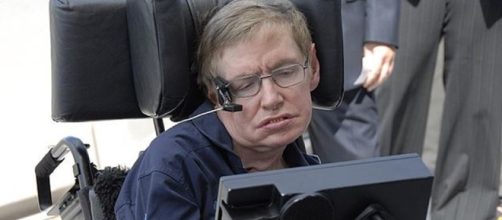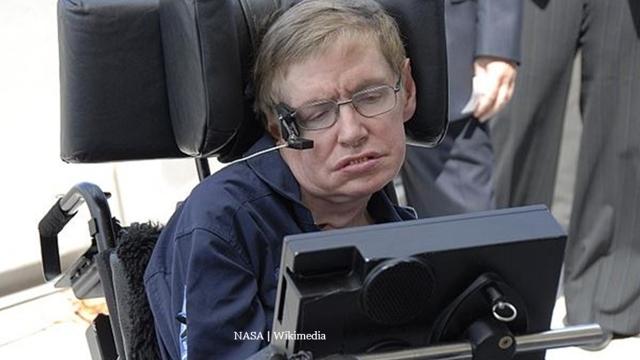Stephen Hawking's ashes will be interred in Westminster Abbey today (15th June), Metro Uk reported. A message by Hawking will also be beamed into space, aimed at the closest black hole which is named 1A 06200-00. The European Space Agency will do the technical side of the voice messaging, according to Reuters. His message was described by Lucy Hawking, Stephen's daughter to the BBC. She said that “It is a message of peace and hope, about unity and the need for us to live together in harmony on this planet.”
Hawking's message of love release will be accompanied by music
She also explained that the message by the famous theorist of relativity and black holes was not going to some lofty black hole, but towards one in a "binary system" with an "ordinary orange dwarf star."
The message release is likely to be a tear-jerker at the memorial, as Tech Times said it will be "accompanied" by "music from "Blade Runner" and "Chariots of Fire" composer Vangelis." The memorial is expected to be well attended and about one thousand members of the public who were selected by a ballot system will be there.
Stephen Hawking's sending a message into space, albeit posthumously, is an interesting concept. He was against humans trying to contact aliens via space messages, as was reported by the Independent UK in 2016. He felt it could be very dangerous and "suggested that any civilisation we did make contact with is likely to see us as no more developed than bacteria."
But this time, perhaps his message is for humans themselves. As we are set to expand space exploration and are already talking of colonizing Mars, the day may come in the distant future where human explorers will need to be reminded of love and tolerance. That's if the message lasts that long, as the Big Think notes that the gravitational pull of the black hole will swallow up the message signal.
They go on to remind us that Stephen Hawking was the type of person who would probably enjoy the gesture as black holes were his main fascination.
The time travel party that nobody attended
The publication also reminds readers that Hawking once had a party for time travellers who never showed up. He did not seem to be amazed at the no-show. "I didn't send out the invitations until after the party. I sat there a long time, but no one came," Big Thinker wrote of the non-event.
Hawking died many years after his predicted lifespan after being diagnosed with Motor Neuron Disease, ALS. In his later years he was only able to communicate through very sophisticated equipment and became an icon to both those people who had an interest in science, but ordinary people too.


